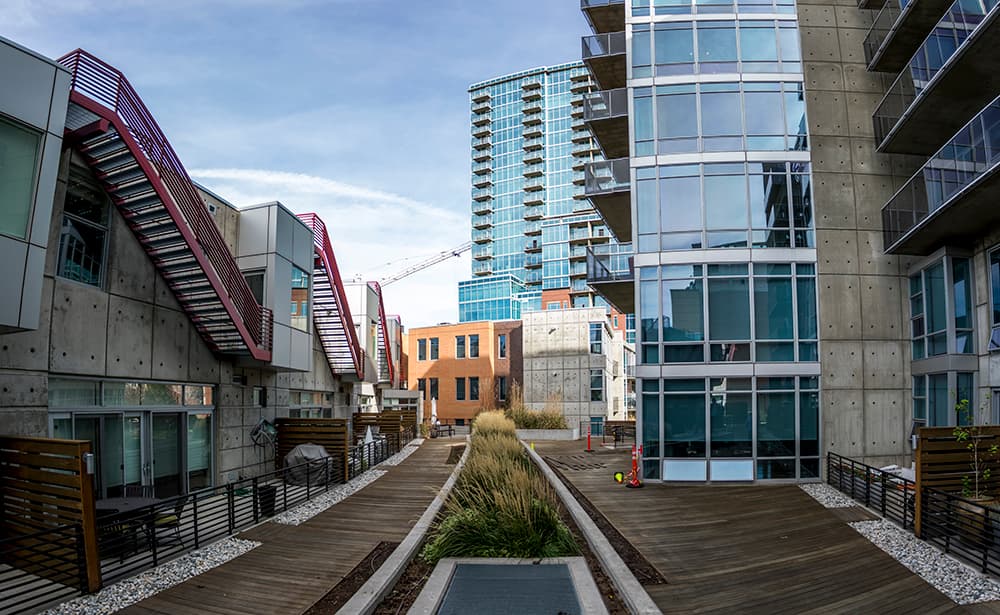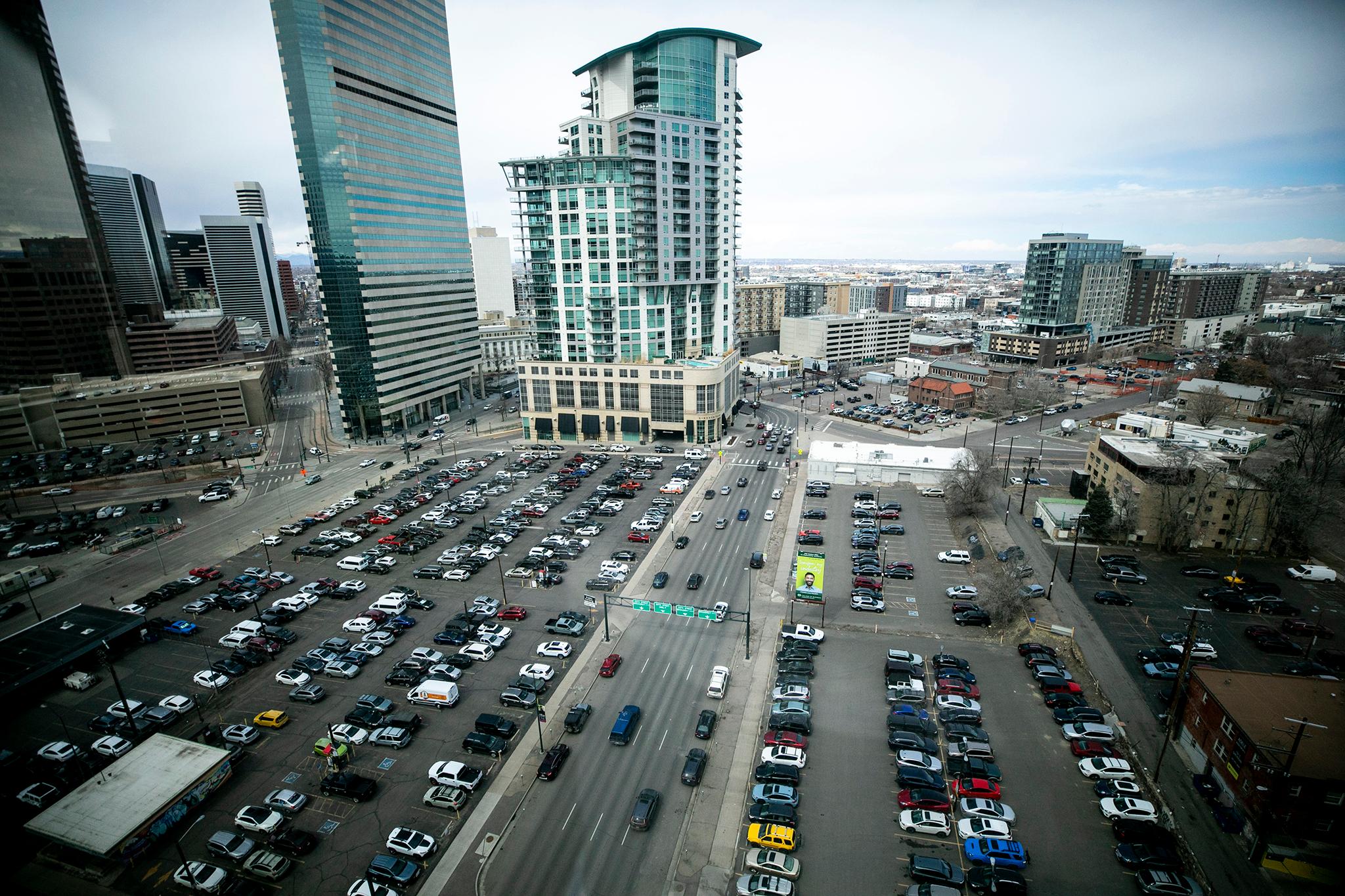Denver’s about to have a big conversation about parking.
Under a new proposal from city staff, the city would abolish parking minimums, allowing developers to choose whether to include parking spaces in new construction.
State lawmakers are pushing cities to make these kinds of changes. A recent state law will ban many cities from enforcing “parking minimums” in certain areas near transit lines. But Denver’s new proposal would go further, eliminating parking requirements across the city.
"Making Denver more affordable for all Denverites means breaking down barriers and making it easier to build housing in our city," Mayor Mike Johnston said in a statement.
The city hopes that eliminating parking requirements will result in faster project reviews and make housing cheaper to build. Developers would still be allowed to create as much parking as they want; the proposal would not create “parking maximums.” Supporters say this approach would let the market decide how much parking is necessary.
The idea of eliminating parking requirements has drawn sharp debate in Colorado — and will likely do the same in Denver, as the city launches a long public discussion about the proposal.
Some opponents fear the change would lead to more crowded city streets, with residents of new buildings parking curbside if they don’t have dedicated spots.
“Parking is an emotional discussion,” said District 9 Councilmember Darrell Watson. “In any zoning discussion I have in District 9, the first question is parking.”
“My residents don’t want this,” said District 5 City Councilmember Amanda Sawyer, who instead suggested that the city set maximum limits on how much parking can be built.
Community Planning and Development, the Department of Transportation and Infrastructure and the Office of Climate Action, Sustainability and Resilience are leading the parking reform effort.
The city council’s Budget and Policy Committee members discussed the proposal on Monday afternoon, but it's unlike to see final action for several months. City staff expect to work on research, community engagement and the bill drafting process through June 2025, when the change could be implemented.

Here’s how parking works in Denver right now:
Currently, developers must build a minimum number of parking spots for many new developments. The number is based on an area’s zoning and the type of development.
For example, market-rate apartments must have one parking spot per home. Restaurants require four spots per 1,000 square feet of indoor space.
Not all projects require parking under the current law. Single-family homes don’t have minimum parking requirements. Nor do accessory dwelling units or developments in certain neighborhoods.
It’s unclear how the proposal might ultimately affect the amount of parking in new developments.
Some developers already choose to build more parking than the city requires — indicating that, at least in some cases, they would continue to build on-site parking even without requirements.
The city points to 1901 Lawrence St., where 633 spaces were built when none were required, and 600 Park Ave, a 230-unit building that built 217 spots when none were required. At 1145 S. Broadway, 691 spots were built when just 428 were mandated.
Those were especially large buildings in central Denver. But proponents of housing reform often argue that these changes would be most beneficial for smaller condos and apartments.

The current law is designed to keep new apartment and condo dwellers from clogging street parking with cars.
But parking comes at a cost. Each spot in a parking structure adds up to $50,000 to a project, according to Denver’s planning department.
Surface parking is much cheaper, but it also takes up valuable space, making it tougher to build dense residential projects on small lots.
Even adaptive reuse projects, where old buildings are repurposed for housing, have parking requirements that raise costs and slow the process.
As Councilmember Chris Hinds sees it, eliminating parking minimums would be a good thing.
“We have a housing crisis,” he said. “Not a parking crisis.”
Building more parking spots also encourages people to drive, city planners argue, creating traffic and pollution.
Denver is considering going beyond the requirements of the new state law.
The new law only requires cities to eliminate parking minimums for certain residential developments within a quarter-mile of some transit lines. But the city proposal would wipe them out across Denver.
“For the best outcomes and to prevent patchwork parking rules (which are difficult for the city to administer), Denver proposes to remove car parking ratios for all uses in all zone districts citywide,” planning staff wrote.
The beginning of a long conversation:
Councilmember Kevin Flynn said doing away with parking requirements could have unintended consequences, like encouraging the construction of studio and one-bedroom units instead of housing for families.
Councilmember Flor Alvidrez said there’s a moral obligation to address climate change. As she sees it, eliminating parking requirements would boost the housing supply and relieve price pressure, allowing families to stay in Denver.
Meanwhile, the city is considering updating its Transportation Demand Management requirements to ensure new residents can access programs like subsidized transit passes and car shares.
"This is a market-based solution that will help deliver our goal of a Denver that is truly affordable for working families without impacting parking needs for our residents," Johnston said.
City Council President Amanda Sandoval said it would be hard to explain the change and the new state law to the public. She encouraged her fellow council members to host open houses to ensure a transparent process.
Sawyer said Denver has a “retail politics problem here” — meaning it could be hard to convince residents the change is a good thing.












